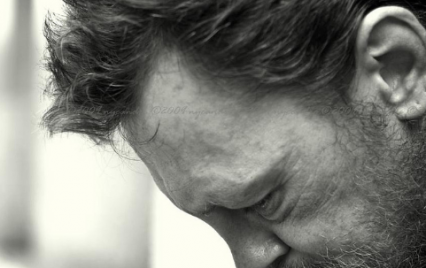
 SBA73 via Compfight
SBA73 via Compfight
This is continued from this 1-5 article.
It’s REALLY helpful to read that part first for context, I assure you!
Now on to the next half:
6. Non believers live in fear and doubt.
It’s interesting that many from inside the Christian bubble will ascribe these attributes to non believers when a simple gaze across the church goers on any Sunday morning will show the very same thing to be true of Christians too. I don’t know anyone who does not live in fear and doubt at least from time-to-time. What some Christians won’t tell you is that the local pharmacists know a lot about their fear and doubt even if those in their small group aren’t privy to the matter. And some people just drink, shop, or puke their fattening meal to cope. What is more true? To be human is to fear and doubt. We may call it worry or concern, or a prayer request, but it’s there for Christians and non believers alike.
7. Non believers are afraid of death.
Some are not. Some Christians are not. Not everyone braves their impending physical demise well. This is not so strange, because imagining not needing or using your body anymore is really odd. Really really odd.
Even a Christian who will tell you they know for absolute sure that they will be in heaven with Jesus at the moment of death, as you probe them further and they get into specifics their ideas about all that there is a shift. Either they will often become full of fantasy (sourced in the poetic and figurative descriptions of the afterlife from the Bible which they have illogically decided to take literally [sic.] Pearly gates, streets of gold, or Jesus riding a gigantic purple horse) or that may dissolve into what becomes rather unsettling admission of mystery. Can you really know the particulars? Of course not.
It’s thoughtful to be challenged by the unknown–which is what death is. It’s important to come to your end of surety. It keeps us humble and growing. For everyone, that portion of life and death is a matter of faith, no matter what we believe will happen once our heart stops and we will soon be lowered underground. It is creepy because we are used to being alive, breathing and such. We hate it when others we love die, and leave us, and the whole thing is strange, if we are going to be honest. But, are we?
8. When they behave properly, non believers unconsciously borrow ethics from Christians.
Oaky, on this one, perhaps I’ll say “Yes and No”. In the U.S. the influence of Christianity in our common society is thick and unavoidable. Yet, unbeknownst to Christians, behaviors we (Christians) consider good Christian values and ethics are also part of a meta ethic known the world over and through the whole span of human history. (Following through and getting it right is a whole different business, of course.) This meta-ethic, which many secular anthropologists downplay, or quickly chalk up to darwinian processes, (ad hoc mind you) actually seem to point toward the transcendent. The philosophers get into this quite a bit. So, the part of us that is involved with consciousness is ever-present and point to a place off our seen “map” if you will. Call it the “Devine Spark”, “God”, Yahweh, the Universe (if something impersonal could somehow also be personal, by whatever), the “higher self” (a la Alcoholics Anonymous), or what-have-you…we are essentially speaking of the same big thing… that incidentally is no thing. The Other, the great I AM, the life force, and really when we split hair on that big point, we miss the forrest for the trees.
9. Non believers discredit the unseen world.
This is hardly ever true. Yes, there are a few full blown materialists, but like the unicorn, they are rarely seen and then, only for a few fleeting moments in the perfect circumstances like when painted on velvet or when Harry Potter is nearby.
The desire to discover the mysteries of life are ever-present. Media is a great barometer for this. For instance, witness the many horror genre movies (ghosts, zombies, paranormal stuff, aliens, etc) and all the tv shows groping for answers from the spooky and paranormal night-vision scenes from the many television shows on cable, to the mediums, psychics, and spiritual celebrity gurus and even mega-church personalities (Yes. I’m including everyone from Joel Osteen, (Joyce) Myers, Oprah, Deepak Chopra, and Rick Warren, to Billy Graham, and the Dali Lama). Our gurus and guides are plentiful and that’s because the demand for them is so high. Plus, the prophecy folks of all stripes continue their empires as the masses feeling around in the murkiness for answers.
10. Non believers are going to hell one day.
Okay, this is the one that may get me the hate mail. Just hang on! The reason that this is a misconception is because we can’t know how Grace will or won’t affect a person once they die. We trust in Grace. In the idea of it existing; in the Being that doles it. Can we know another person’s heart that well? I doubt it when our own heart is so unfathomable and fickle for us. Grace is big. As big as you think it is, you are wrong. It’s bigger. I’m always wrong about grace because I cannot fathom it for too long.
Thank you for joining me. If this article made you think, please share it with someone.
Sign up for the next article? I can’t tell you what it’ll be but I think you’ll like it.
![]() A Guy Taking Pictures via Compfight
A Guy Taking Pictures via Compfight





